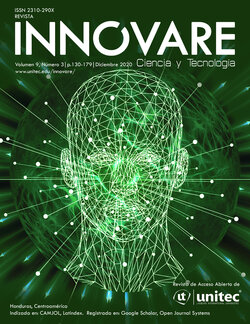Honduras COVID Researchers Consortium: a response of academics to the pandemic
DOI:
https://doi.org/10.5377/innovare.v9i3.10655Abstract
As tradition dictates in most countries of the world, every December 31st at 11:59:50 p.m. the countdown begins to receive the next year with hope, good cheer and fervent desire that things go well, not only on a personal and family level, but also on a global level. As news of the global crises continued, no one was prepared for what was coming. In mid-January, the first informational "skirmishes" about a new respiratory virus in China were given. According to recent history, the virus did not seem to represent any novelties. We already knew about SARS-CoV (Severe Acute Respiratory Syndrome-related Coronavirus) in 2003 of the H5N1 influenza virus in 2005, influenza H1N1 virus in 2009 and MERS-CoV (Middle East Respiratory Syndrome-related coronavirus) in 2012. Following the announcement of the onset of type 2 coronavirus (SARS-CoV-2) or COVID-19, our lifestyle as Hondurans as well as that of the rest of the world did not change at all. It was thought that this time would not be the exception to the routine of the viruses that come and go, especially since our country is 14,460 km from Wuhan.
Downloads
1243




